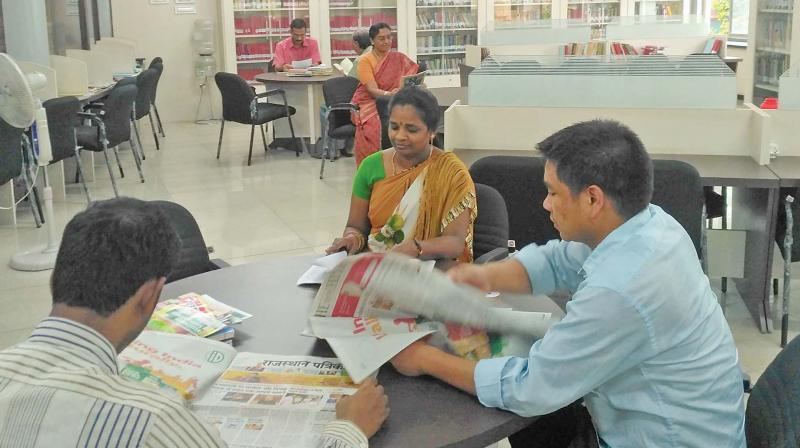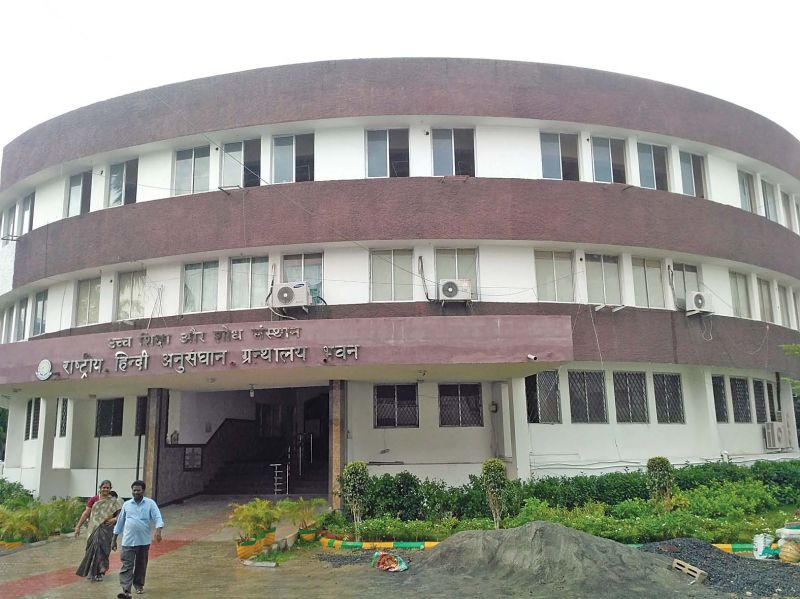Hindi learners on rise in Tamil Nadu

Chennai: In the Dravidian Tamil Nadu, hatred for Hindi is a myth, if one goes by the encouraging statistics relating to new learners flaunted by the proud teachers of the ‘Rashtra Bhasha’. In fact, Tamil Nadu tops among the southern states in the enrolment of Hindi learners.
The Dakshina Bharat Hindi Prachar Sabha (DBHPS) at Chennai has recorded over 12 lakh enrolments of candidates taking the various Hindi exams conducted by it across Tamil Nadu over the last 10 years, whereas only 4.76 lakh candidates took its exams in the state during 1998-2008, says Sabha general secretary S. Jayaraj.
He attributed the increase in the number of Hindi learners in the ‘Dravida Nadu’ to the people yearning to acquire the DHPS qualifications, which are recognized as the institution falls under the Union HRD Ministry, to be able to pursue higher studies or gain employment in other states.
“With the state government deciding to stop teaching Hindi in its (government) schools from 2006, when Samacheer Kalvi was inducted, many parents turned to the Hindi Prachar Sabha or private tutors to gain knowledge of Hindi so that their children are better prepared for pursuing higher studies or apply for jobs in other states, particularly in the north”, said Jayaraj.
He said the Hindi seekers preferred the Sabha to private tutors because it awards certificates on completion of its various exams and being an MHRD institution, those certificates hold official recognition among the educational institutions across the country and with the employers.
 Dakshina Bharat Hindi Prachar Sabha at T Nagar, Chennai. (Photo:DC)
Dakshina Bharat Hindi Prachar Sabha at T Nagar, Chennai. (Photo:DC)
The DBHPS has more of interesting statistics to demonstrate the Tamils’ love for Hindi. The average number of new enrolments recorded annually by the TN unit, which has its nodal headquarters at Chennai and 20 branches across the state, is at least 60 per cent more than the numbers in Andhra Pradesh and Telangana; 85 per cent more than Karnataka and 90 per cent more than Kerala.
True, Hindi seekers in the other southern states do not have to turn to DBHPS since their schools already provide lessons in the language as their governments have not banned Hindi in state-run schools-which has been the bane of the TN students becoming the victims of political games. “I find it a bit embarrassing when my north Indian colleagues at office tell me it’s only in Tamil Nadu that they find it difficult to socialise outside the office hours because of the language barrier, which does not exist when they work in any other southern state”, said Gautami (name changed on request), an IT professional.
The TN government ban on Hindi in its schools has not only deprived its students of the opportunity to learn a language that could be vitally important to their pursuit of higher education or employment outside the state, but also rendered several Hindi teachers as jobless. But that has not dimmed the enthusiasm of the 'Dravidians' queuing up for enrolment at the DBHPS for its high-level xxx and qualify to become a teacher. “Many of our Hindi teachers are fairly busy with tuition classes at home. It provides handsome income, apart from the convenience of time and place”, said Sabha secretary Jayaraj.
“I have 30 students, mostly students getting ready for admissions to higher studies outside Tamil Nadu or for interviews for IT jobs. When a candidate appears for interview, one of the crucial questions asked is ‘how many languages do you know?’ And knowing Hindi is a huge advantage”, said V. Alamelu, a young homemaker at Thiruvalluvar Nagar in Thiruvanmiyur. The pracharak (teacher) has done her ‘Praveen Uttarardh’ at the DBHPS. A corollary of what she said is, ‘Not knowing Hindi is a huge disadvantage’.

